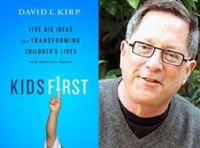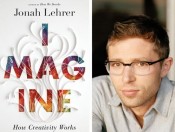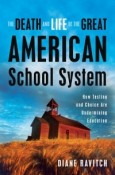Written on October 8th, 2014
Aired 07/24/11
DAVID KIRP is a professor at the Goldman School of Public Policy at the University of California Berkeley. He taught at the Harvard Graduate School of Education and was founding director of the Harvard Center on Law and Education. He served on President Obama's presidential transition team. A former associate editor of the Sacramento Bee and syndicated columnist, his books include The Sandbox Investment: The Preschool Movement and Kids-First Politics; Shakespeare, Einstein, and the Bottom Line: The Marketing of Higher Education; and his latest, KIDS FIRST: Five Big Ideas For Transforming Children's Lives And America's Future
What's good enough for a child you love?
What's good enough parenting? Good enough early education? Good enough healthcare? Good enough schools? Good enough support for college?
Today's guest, DAVID KIRP, envisions a national effort to support and develop our children based on a simple but powerful "Golden Rule:" Every child deserves what's good enough for a child you love.
His "Kids-First Agenda" takes two exceptions to much of current thinking and policy. First, while most policy for children focuses on K-12 classrooms, research makes clear that what happens before kindergarten and after school each day is at least as important in the their development.
Second, while programs for children usually concentrate on helping the very poorest, Kirp argues that, in this era of underperforming public schools, budget cuts, and two-worker families, America's middle class also needs help. Not only that, programs for the poor are constantly under threat; programs that serve the wider public are more sustainable.
In KIDS FIRST, he offers on-the-ground accounts of initiatives that work - and that could affordably be implemented in communities everywhere - to achieve five key priorities:
1) strong support for new parents,
2) high-quality early education,
3) linking schools and communities to improve what both offer children,
4) giving all kids access to a caring and stable adult mentor,
5) providing kids a nest egg to help pay for college or kick-start a career.
Written on April 11th, 2012
Aired 04/08/12
Do you consider yourself to be creative? Do you think of creativity as a gift, a talent, something you either have or you don’t? Do you find creativity to be a bit mystical or magical, dependent on luck, the muses, or higher powers?
Today’s guest, JONAH LEHRER, has written a book in which he looks at the latest brain science and attempts, in his words, “to collapse the layers of description separating the nerve cell from the finished symphony, the cortical circuit from the successful product.”
In Imagine: How Creativity Works, Lehrer makes clear, “Creativity shouldn’t seem like something otherworldly. It shouldn’t seem like a process reserved for artists or inventors or other “creative types.” After all, he points out, the human mind has the creative impulse built into its operating system, hard-wired into its most essential programming code.” Creativity is a variety of distinct thought processes that we can all learn to use more effectively. In the book, Lehrer reveals the importance of embracing the rut, thinking like a child, and daydreaming productively. He also shows how we can use this knowledge to make our neighborhoods more vibrant, our companies more productive, and our schools more effective.
http://jonahlehrer.com
Written on September 18th, 2010
Aired 09/12/10
DIANE RAVITCH
author,
DEATH AND LIFE OF THE GREAT AMERICAN SCHOOL SYSTEM
How Testing and Choice Are
Undermining Education
VICKI ABELES
producer-director,
RACE TO NOWHERE
ENRIQUE GONZALEZ
Principal, BIG PICTURE Schools
http://www.dianeravitch.com/
http://www.racetonowhere.com/
http://www.bigpicture.org/
http://www.fkhs.org/



